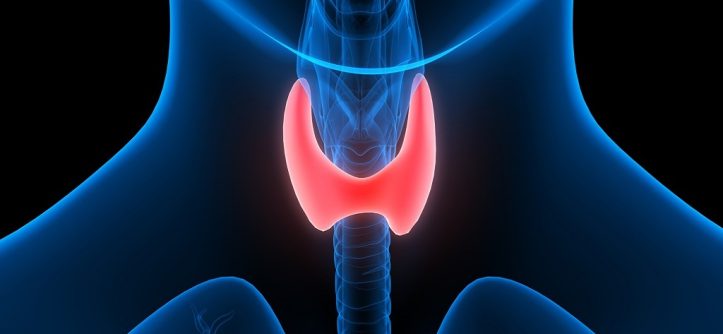Your thyroid is a butterfly-shaped gland that makes hormones that control metabolism. It turns food into energy to keep your body running correctly.
Thyroid disease affects millions of Americans, yet many are undiagnosed. Symptoms often mimic other conditions and can be challenging to identify.
A CT scan can show whether you have a thyroid condition. Getting diagnosed and treated early can prevent long-term complications.
Symptoms
The thyroid gland regulates several bodily functions, including heart rate and metabolism, by producing hormones. It can produce too little of the hormone (hypothyroidism), too much (hyperthyroidism), or no hormone at all (non-functioning thyroid). Some individuals may develop thyroid disorders due to the production of antibodies by their immune system that attack the thyroid gland. Others have cancer of the thyroid or other problems that require treatment.
Undiagnosed thyroid disease can cause severe complications, including heart disease, osteoporosis, and infertility. Symptoms of thyroid diseases often mirror those of other conditions, such as depression and menopause, which can lead to a delay in diagnosis.
To diagnose thyroid disease, a thorough physical examination and review of medical history are conducted by the doctor. In addition, blood tests, an ultrasound, and a thyroid gland biopsy are ordered to identify any abnormalities confidently. Blood tests can measure how much thyroid hormone is in your blood. They can also test for antibodies to the thyroid. Ultrasound technology is a highly effective method that utilizes high-frequency sound waves to produce incredibly accurate and clear images of the body’s internal structures, including the thyroid gland.
Diagnosis
Your thyroid is a tiny two-inch-long gland, but it has a powerful impact on your body’s feelings. Even a slight change in thyroid hormone production can alter your weight, energy levels, and feelings about life. Unfortunately, researchers estimate that 13 million people are living with undiagnosed thyroid Denver.
A thorough physical examination and detailed medical history analysis by your doctor is the key to diagnosing a thyroid disorder accurately. Your doctor may also order a blood test to measure the amount of thyroid-stimulating hormone (TSH). A low TSH level may be an indication that your thyroid is underactive.
The thyroid gland can become inflamed, a condition called thyroiditis, which reduces the number of hormones it produces. It can also become overactive, a condition called hyperthyroidism. Hyperthyroidism is commonly caused by an autoimmune disease or specific medications, which may include those containing iodine or those employed to treat Graves’ disease, rheumatoid arthritis, and lupus.
Treatment
The thyroid gland makes hormones that influence almost all the metabolic processes in your body. Too much production results in hyperthyroidism, and not enough production leads to hypothyroidism.
Your doctor can test your thyroid by doing a simple blood test. They can also do an imaging test to check for an enlarged thyroid (goiter) or growths on the thyroid called nodules.
Medications for hyperthyroidism include antithyroid drugs (methimazole and propylthiouracil), radioactive iodine ablation, or surgical thyroidectomy. Radioactive iodine ablation causes your thyroid to produce less hormones by damaging the cells in your thyroid.
Surgery to remove your thyroid is a more permanent treatment. Your doctor will give you thyroid replacement medicine to replace the missing hormones. Taking this medication will help you feel better and live an everyday life. You’ll need it for the rest of your life. It’s important to tell your healthcare provider about any medicines you take, including supplements. These may interfere with the effectiveness of your thyroid medication.
Prevention
There is no guarantee that you can prevent thyroid disorders, but there are some measures of self-care and education that may help. For example, avoiding excessive consumption of table salt, eating an anti-inflammatory diet, and staying on a regular schedule for your doctor’s appointments can all be helpful.
There are two main types of thyroid disease: hyperthyroidism and hypothyroidism. Hyperthyroidism occurs when the gland makes too much thyroid hormone. It can cause your heart to beat faster, make you lose weight quickly, and cause nervousness.
Hypothyroidism occurs when the gland doesn’t make enough thyroid hormone. It can make you feel tired, weak, and unable to tolerate cold temperatures. Sometimes, the thyroid gland doesn’t function properly from birth, called congenital hypothyroidism. Other times, the thyroid may develop overactive nodules, causing you to have hyperthyroidism. The most common treatment for this is radioactive iodine therapy, which involves swallowing a pill containing a high dose of iodine to kill the thyroid cells that produce too many hormones.
Tags: pediatric thyroid disorders, rare thyroid disorders, thyroid disorders symptoms in females, types of autoimmune thyroid disorders




Leave a Reply